Fujia Zheng
Domain-Oriented Prefix-Tuning: Towards Efficient and Generalizable Fine-tuning for Zero-Shot Dialogue Summarization
Apr 09, 2022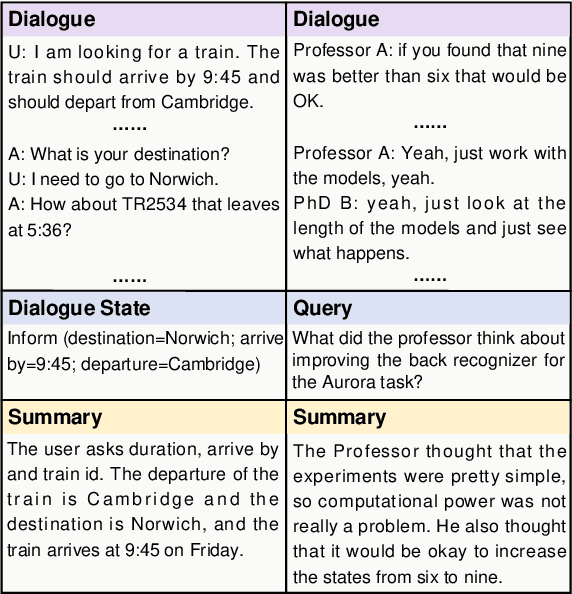
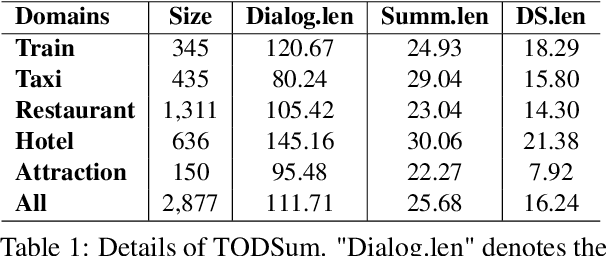
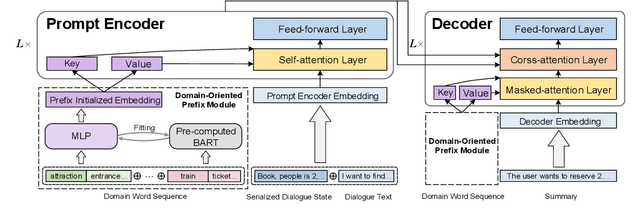
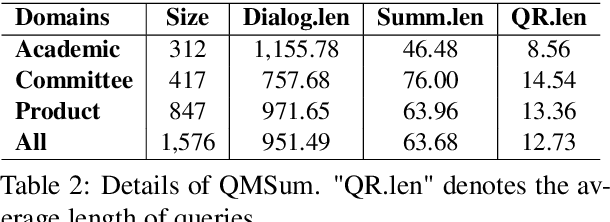
Abstract:The most advanced abstractive dialogue summarizers lack generalization ability on new domains and the existing researches for domain adaptation in summarization generally rely on large-scale pre-trainings. To explore the lightweight fine-tuning methods for domain adaptation of dialogue summarization, in this paper, we propose an efficient and generalizable Domain-Oriented Prefix-tuning model, which utilizes a domain word initialized prefix module to alleviate domain entanglement and adopts discrete prompts to guide the model to focus on key contents of dialogues and enhance model generalization. We conduct zero-shot experiments and build domain adaptation benchmarks on two multi-domain dialogue summarization datasets, TODSum and QMSum. Adequate experiments and qualitative analysis prove the effectiveness of our methods.
TODSum: Task-Oriented Dialogue Summarization with State Tracking
Oct 25, 2021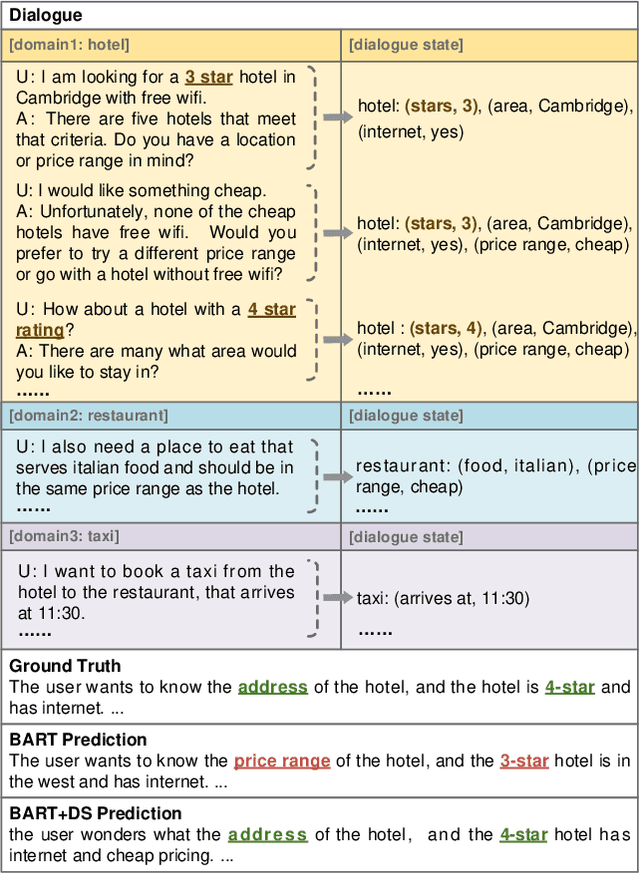

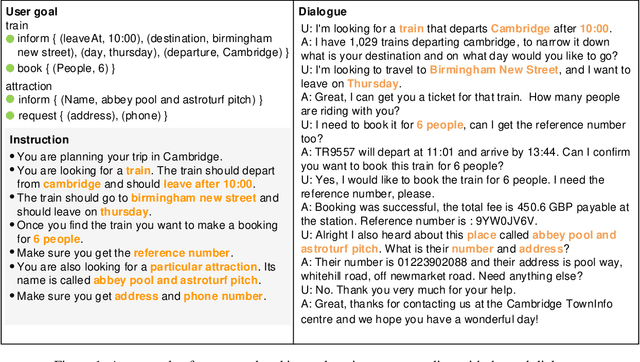

Abstract:Previous dialogue summarization datasets mainly focus on open-domain chitchat dialogues, while summarization datasets for the broadly used task-oriented dialogue haven't been explored yet. Automatically summarizing such task-oriented dialogues can help a business collect and review needs to improve the service. Besides, previous datasets pay more attention to generate good summaries with higher ROUGE scores, but they hardly understand the structured information of dialogues and ignore the factuality of summaries. In this paper, we introduce a large-scale public Task-Oriented Dialogue Summarization dataset, TODSum, which aims to summarize the key points of the agent completing certain tasks with the user. Compared to existing work, TODSum suffers from severe scattered information issues and requires strict factual consistency, which makes it hard to directly apply recent dialogue summarization models. Therefore, we introduce additional dialogue state knowledge for TODSum to enhance the faithfulness of generated summaries. We hope a better understanding of conversational content helps summarization models generate concise and coherent summaries. Meanwhile, we establish a comprehensive benchmark for TODSum and propose a state-aware structured dialogue summarization model to integrate dialogue state information and dialogue history. Exhaustive experiments and qualitative analysis prove the effectiveness of dialogue structure guidance. Finally, we discuss the current issues of TODSum and potential development directions for future work.
 Add to Chrome
Add to Chrome Add to Firefox
Add to Firefox Add to Edge
Add to Edge